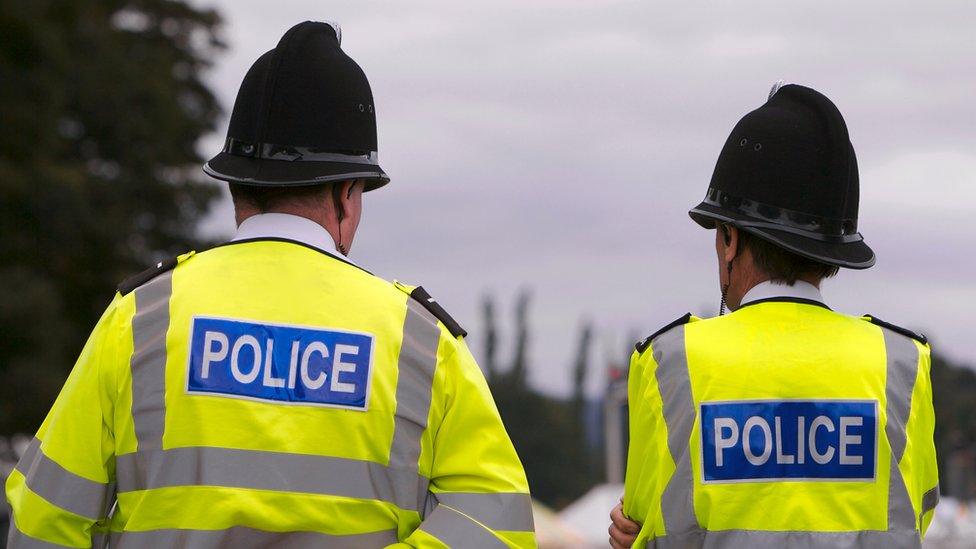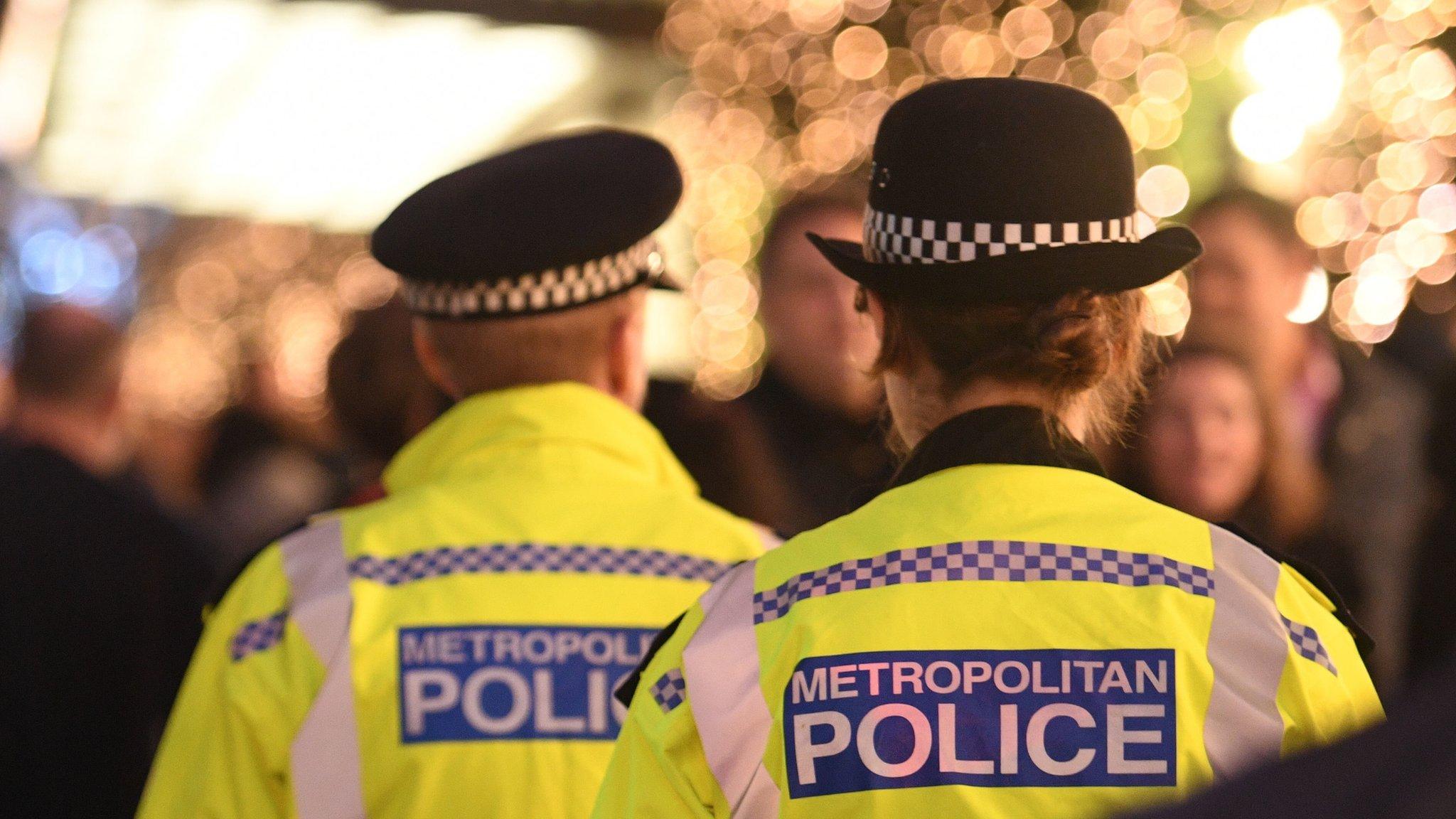Police sexual misconduct: 'No place' for officers who abuse authority
- Published

Since 2016 more than 600 reports of officers abusing their powers for sexual purposes have led to over 200 investigations by the IOPC
Police officers and staff who abuse their position for a sexual purpose have "no place in policing and will be found out", a watchdog has warned.
Figures from the Independent Office for Police Conduct (IOPC) for referrals made in England and Wales last year were nearly double the 2016 numbers.
Abuse of Powers for a Sexual Purpose (APSP) referrals are the largest form of police corruption, the IOPC said.
Between 2016 and 2020, there were 643 referrals for abuse of position.
These resulted in 206 independent investigations.
The National Police Chiefs Council defines APSP as: "Any behaviour by a police officer or police staff member, whether on or off duty, that takes advantage of their position as a member of the police service to misuse their position, authority or powers in order to pursue a sexual or improper emotional relationship with any member of the public."
Last year there were 131 referrals and 70 investigations. That compares to 74 referrals in 2016, which led to 10 investigations.
Between April 2018 and March 2021, 66 police officers and members of staff have faced disciplinary proceedings. Misconduct was proven in 63 cases.
Of the 52 who faced the more serious charge of gross misconduct, 38 are no longer serving and barred from policing for life - six were later convicted of criminal offences.
Not all APSP allegations will be covered by these figures as many incidents will be investigated by the police forces themselves.

IOPC deputy director general Claire Bassett described these cases as an "appalling abuse of the public's trust", which has a "devastating impact on the people involved, who are often in a vulnerable situation".
She said: "The police are there to help them, not exploit them.
"Recent events we have seen, including the horrific actions of Wayne Couzens, remind us that policing must act to root out this kind of behaviour once and for all."
In 2017 legislation was introduced setting out the criteria in which mandatory referrals to the watchdog should be made, including an explicit reference to APSP, which has led to the steep rise in the number of cases being reported, the IOPC said.
APSP is the "single largest form of police corruption" the watchdog explained, accounting for around a quarter of all referrals and almost 60% of investigations last year.
Chief Constable Lauren Poultney from the National Police Chiefs' Council said: "There is no place in policing for those who abuse their position for a sexual purpose."
"Any case of such abuse is one too many, it is a serious betrayal of what policing stands for and its duty to protect the public."
'Barred forever'
Separate figures obtained after a Freedom of Information Request by BBC Newsnight show the number of complaints made about police officers accused of sexual misconduct across the UK.
Of the 44 out of 46 UK forces who responded, 2,702 police officers have been accused of sexual misconduct in the last five years.
Disciplinary action taken from these allegations ended with three per cent of cases in criminal court, eight per cent with an officer dismissed and a further eight per cent issued with a reprimand.
Newsnight spoke to a victim of domestic violence who was exploited by a serving officer.
Jessica (not her real name) reported she had been blackmailed about sexually explicit images of her being posted on the internet.
An officer she believed to be investigating repeatedly asked her for the explicit videos and images and sent explicit images of himself in return - including while in uniform.
He had previously contacted another woman in a similar way and received training about forming inappropriate relationships.
The officer was dismissed after a police misconduct hearing and barred for five years.
Caroline Nokes MP, chairwoman of the women and equalities committee, told Newsnight officers who exploit vulnerable people should be "barred forever".
"It shouldn't be the case that they can serve a five-year bar and come back. That simply isn't protecting the vulnerable," the Conservative MP added.
Related topics
- Published22 October 2021

- Published6 October 2021

- Published5 October 2021
